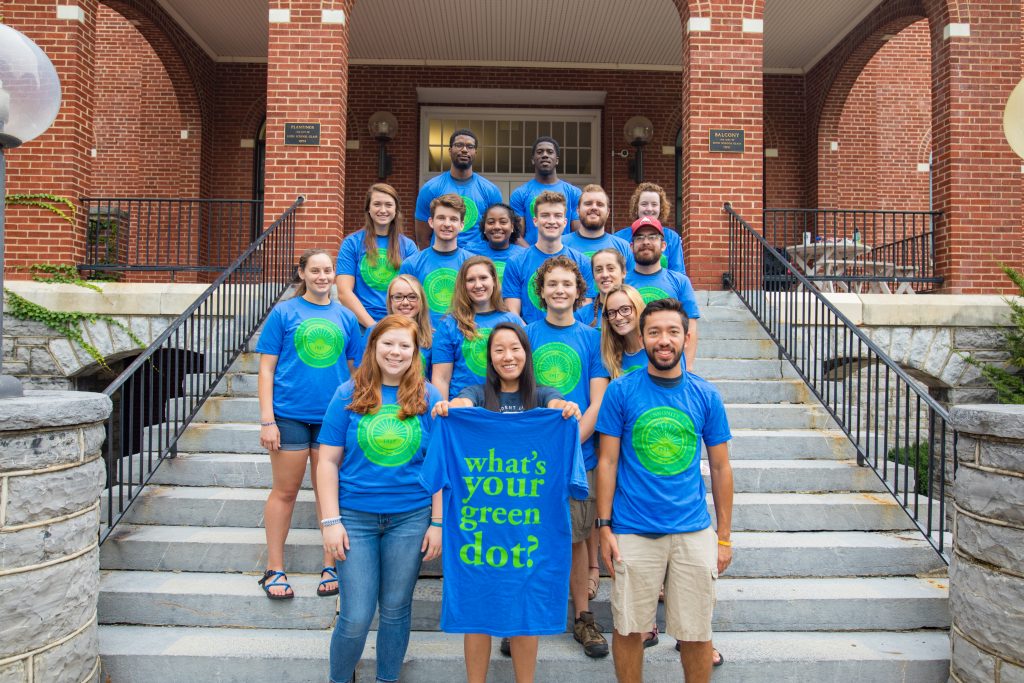Additional grant funding from the U.S. Department of Justice’s Office on Violence Against Women will allow the Safer Together program at Eastern Mennonite University (EMU) to continue to offer a variety of trainings and support services to prevent sexual and relationship violence on campus.
Safer Together programming is coordinated by Grant Manager Leda Werner and guided by about 30 faculty, staff, students, and community partners who make up the Coordinated Community Response Team (CCRT). Community partners include representatives from the Collins Center, First Step, Harrisonburg Police Department, and the Sexual Assault Nurse Examiner program at Sentara RMH.
Funding for the program was first awarded to EMU in 2017, and is set to expire in March. That first round of funding allowed the CCRT to form and implement Green Dot bystander intervention trainings, prevention programming around healthy relationships and healthy masculinity, the revision of campus policies related to sexual and relationship violence to better support victims, and other initiatives.
The renewed grant provides an added three years of funding for existing Safer Together programming, as well as additional training for the CCRT and the campus community at large. Funding also supports a new part-time position working with survivors of sexual and relationship violence.
Whoever is hired into this part-time role will be available “as a confidential resource for students,” Werner explained: someone to whom students can disclose without that person having to file a report with the university. This person will be a resource for students to learn about resources available to them, such as health services, counseling, the Title IX process, community resources and service providers, restraining orders, or even options as simple – but important – as changing a class schedule or residence hall.
“These services will be available to those with acute, recent experiences of sexual and/or relationship violence, as well as those who have had those experiences in the past and would now like to seek support or services as part of the healing process,” said Werner.
The grant also provides funding for increased education on campus about stalking and dating violence – two forms of sexual violence that are often downplayed. Werner said that stalking in particular can be easily misunderstood, “partly because it’s often misrepresented by the media either as a stranger hiding behind bushes or as something that’s romanticized.”
Additionally, “sometimes people who experience stalking trivialize their experience or think it’s not a big deal because the individual acts in and of themselves don’t seem that ‘serious,’ such as leaving notes, non-stop texting, showing up at the same place, sending flowers, et cetera,” Werner said. “So education around what constitutes stalking and that it is a crime that should be taken seriously is something that we need to do more of.”
Education specifically for the CCRT will focus on a few key areas. One is cultural competency, including about the LGBTQ+ community, which experiences “higher rates of sexual violence” than those who identify as cisgender and straight, Werner explained. “In our educational programming, are we speaking about how sexual violence occurs within and to the LGBTQ+ community?”
Other aspects of the cultural competency training will examine how sexual and relationship violence intersects with other forms of oppression, thus uniquely affecting students with different ethnic backgrounds, racial identities, physical and mental abilities, and first languages.
Sexual violence is “one system of oppression that connects to and intersects with other systems of oppression – they all feed off each other and support one another,” said Werner. “So as we look at how we can prevent sexual and relationship violence on our campus, we really need to be dismantling all systems of oppression in order to make that a reality.”

Dear Leda of the Pack ;-),
Congratulations on a job well done!
Jan and Eugene